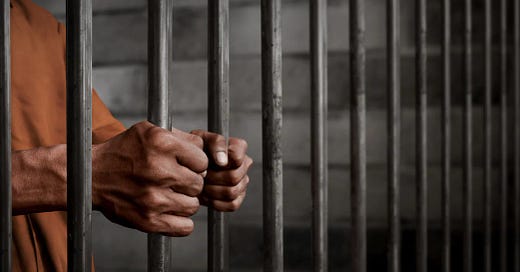This newsletter looks at issues and events from the endgame point of view. The endgame is a chess concept. In the endgame only a handful of pieces are left on the board. Few moves remain. Victory or defeat is close. Player options are limited and diminishing. Zugzwang is a particularly important aspect of the endgame. It is zugzwang when a player’s only available moves will worsen his position.
Toronto, February 26, 2023
Wrongful Convictions
In September 2017 Richard Catcheway was arrested and charged with breaking into a house in Winnipeg. He spent six months in pretrial custody. At his trial he pled guilty and was sentenced to time served plus eighteen months probation. But Catcheway was innocent. He had been in prison in another city at the time of the Winnipeg break-in. A cursory glance at his criminal record—his “sheet”—would have shown that. But nobody bothered to look—not the police, not the prosecutor, not Catcheway’s legal aid lawyer, not the probation officer, not the judge. Eventually the Manitoba Court of Appeal overturned his conviction.
Why would anyone plead guilty to a crime he didn’t commit? When would that be the best choice? In the case of Catcheway, maybe it made sense. He was offered time served if he pled guilty. He said “guilty” and walked away. He wanted to walk away very badly.
The Catcheway case is not unique. Kent Roach, a law professor at the University of Toronto, has a new book, Wrongfully Convicted, about such cases. He describes “the crushing weight of a criminal justice system where police, prosecutors, and forensic experts can team up against the accused.” The wrongfully convicted, he says, are sometimes those who simply give up in the face of overwhelming pressures.
It's not always overwhelming pressure that leads to a false guilty plea. A false guilty plea may be rational and voluntary, as arguably it was in Catcheway’s case. You might plead guilty to a lesser offence rather than risk a trial on a more serious charge that could result in a much longer jail sentence. Or you might accept a plea bargain in exchange for a lighter sentence. Plea bargaining, writes Roach, “is built into the DNA of the criminal justice system... [A] guilty plea has long been a strong mitigating factor in sentencing because it shows remorse and saves victims and society from having the ordeal and expense of a trial.”
Perhaps your lawyer bullied you into pleading guilty. If he is being paid by legal aid, with its notoriously low tariffs, he may think defending you is hardly worth his trouble. Damn your professions of innocence! Roach tells this story: “Teresa... told her lawyer, ‘I’m not pleading guilty to robbery—I’m not guilty.’ He replied, ‘If you think I’m going to trial on Legal Aid, you’re seriously kidding yourself.’” It’s not just legal aid lawyers who like guilty pleas. Prosecutors and trial judges like them too. Guilty pleas are efficient. They save the system time and trouble.
The poor, the uneducated, women, Indigenous or racialized persons, and the mentally ill, are particularly vulnerable to these pressures and inducements. Roach writes about “conscious or unconscious stereotypes that associate certain people with crime.” Often disadvantages are “intersectional” (a sesquipedalian word that in this case simply means that you have multiple disadvantages). Richard Catcheway’s mother, a residential school survivor, died when he was four years old; his father was nowhere to be found; Catcheway quickly acquired a criminal record; he became a drug addict.
By the way, don’t think you’re safe from all this if you’re comfortably middle-class and free from intersectional disadvantages. Don’t be smug. You can come a cropper too. Suppose, e.g., you’re pursued unreasonably by the Canada Revenue Agency. You think your lawyer will protect you? You won’t qualify for legal aid. And you won’t be able to afford a lawyer without mortgaging your house. As I’ve written elsewhere: “How much justice can the average Canadian afford? None.”
Good luck.
P.S. My new book is Antisemitism: An ancient hatred in the age of identity politics. It will be published on March 7 in Canada and on April 4 in the United States and the United Kingdom. You can pre-order from the publisher, Sutherland House, or from Ben McNally Books. Visit my website.





Years before I went to law school, I found myself in a similar situation. Fortunately, I pleaded not guilty ... and defended myself (after I found out my lawyer was an alcoholic and had missed my court dates and forgotten to tell me about them). When I won the trial, it planted the seed in me, and I started thinking about going to law school. (I was working as a courier then, because I couldn't get a job to match my degrees).